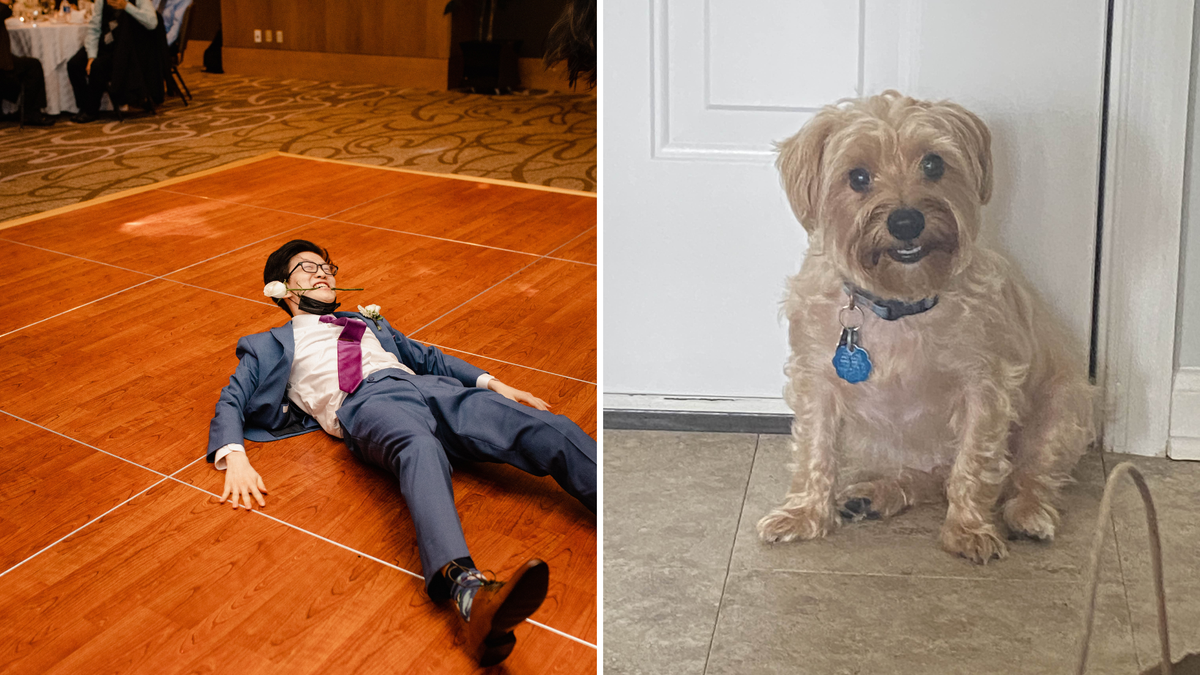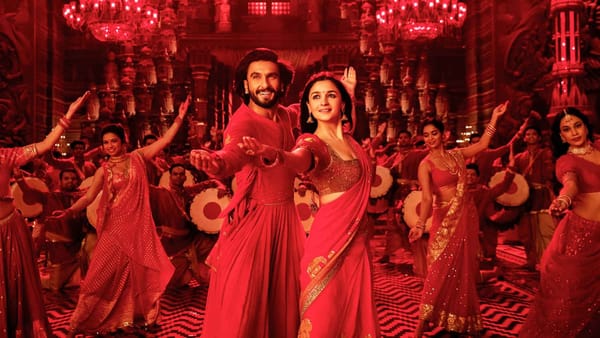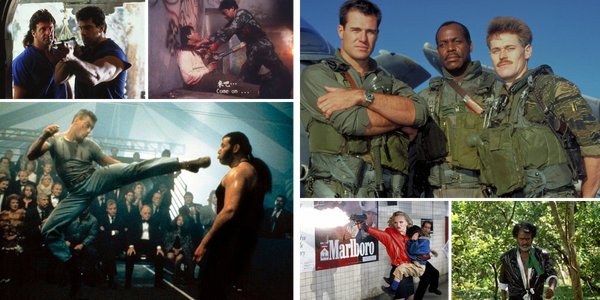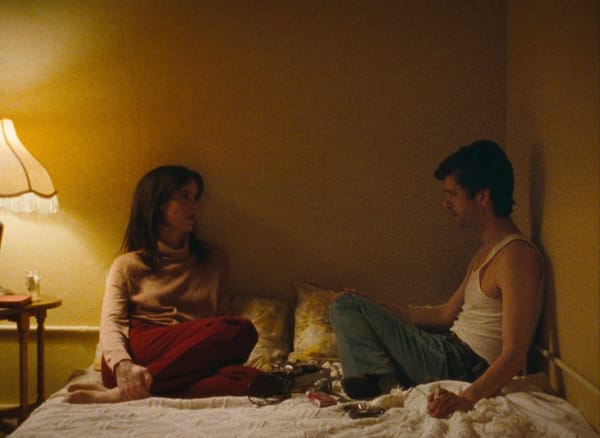Polygon Exit Interview: Johnny Yu, Guides Writer
One of the key parts of Polygon's excellent guides team announces his new venture

Welcome to Polygon Exit Interviews, a series of chats with my excellent former Polygon employees who were laid off (along with me) when Valnet purchased the website from Vox Media May 1. We’re going to talk about how these talented people got to Polygon, what they did in their time there, and what they hope is next. I’m going to be publishing quite a few of these in the next few weeks, which will likely result in a higher-than-usual cadence for this newsletter moving forward.
Next up: Johnny Yu, who was a key part of Polygon’s excellent guides team (and launched his new site, Should You Play, today). I’m especially grateful to Johnny for his excellent Blue Prince guides, which have helped me tremendously as I’ve tried to make my way through that game. Johnny’s guide approach doesn’t always just hand you the answer, but helps you figure out how to get there yourself. That makes it feel a bit less like cheating, which I’ve always appreciated. Fans of the game should definitely check out his Blue Prince review, which I feel captures the essence of the game better than any other I’ve seen.

Tell me about your pre-Polygon background.
I was having a pretty hard time looking for work in my field, because I came out of college with a food science degree. Nothing writing related, nothing English related, I did not think I would ever become a writer. I loved watching shows on the Food Network, Unwrapped was my favorite show growing up as a kid. Seeing the food production and everything l really made me want to go into the food industry growing up.
Nothing ended up working out in the food science section, so I was always looking for more work. I kind of got nepotized in by [guides writer] Julia [Lee], and that’s how I ended up at Polygon in 2022.
When did you first join Polygon, and what do you remember about joining?
I started out freelancing in 2022 with Lost Ark. I was not a Lost Ark player, to be honest, and looking back at the games I did when I was freelancing, I was not really a player of a lot of those games. I think that’s how a lot of freelancers just have to do things.
The first few weeks were pretty rough. I wasn’t a writer, and I didn’t really look at gaming websites to begin with. Julia knew I was looking for work, and brought up the idea that I could pitch something to Polygon, because we would always play games together. I met Julia through League of Legends, even though we went to the same school. She knew I was good at games and that my knowledge about them was strong.
I ended up pitching a Lost Ark beginner’s guide where Julia helped me come up with an idea for the pitch and disguise it as something I wrote for fun to help my friends. But in reality, the plan all along was to try to get me a foot in the door at Polygon for freelance in general. And it did get picked up.
But for some reason, every time I joined Polygon, something went wrong. I had three different stints – as a freelancer, and two as a contractor – and three different managers. My first manager was on the way out as I came in, which was a little rough. But it got me to where I am now, I guess. The thing I remember most about first joining was the drama around the managing situation.
Then I joined as a contractor, and I knew I was going to be working on the Harry Potter game, Hogwarts Legacy. I knew no one on the guides team wanted to touch that game. Because I was new, I thought this was a good opportunity for me to write about something that could possibly get my name out there and secure a role at Polygon, even if it’s a game that I do not really agree with the things surrounding it politically. I was really scared to write about that game in general, but I decided to just go for it. I remember the other people covering the game, like Maddy [Myers] and [Nicole] Clark, were really supportive of me. But to take on something like Hogwarts Legacy as a solo guides writer was an interesting task, especially because it was one of my first tasks as a contractor, and it was a pretty major release.
You mentioned you didn’t read a lot of games websites before joining Polygon. How did you find your approach to writing guides?
I looked at formats from other guides writers, taking what I liked and avoiding things I didn't like. At first, Julia gave me a crash course on what I should do, and I really looked into older Polygon guides to shape my work to look like theirs. I would say at first, my guides were okay. They looked like they were a Polygon guide, of course, but it probably didn't have the same oomph the other guides did. At first, I really struggled with putting a personal voice into guides, because to me, I saw guides like a procedure in school. Like, these are the steps. Just follow these steps and you're good. You don't really need to hear what I think about this game in particular, because all you have to do is follow these steps, and that's that. But over time, I tried to put personal voice more into the guides. I always had it in the back of my mind, and I would just try to write how I would talk.
Another thing that's always interested me about guides writing is how it changes how you play games. How would you describe that to people who've never done it before?
You definitely have to change the way you think. Pre-guides, I wouldn’t play games to 100% them. If I found a collectible, that’s great. But now I really have to find them, and if I don’t, I’m going to be pretty disappointed in myself. Or if I get stuck on a puzzle and I know it leads to side content but not main content, I will still be really disappointed in myself if I can't solve this thing. It kind of eats away at you while you’re playing.
You also need to remember everything you did that led to a certain outcome. I’ve started to record everything I play, even if I don’t think I’m going to write about it. I screenshot essentially everything now, just in case. Having to backtrack feels terrible for guide work.
It really rewires how you see games from then on. Working on a game while guiding it can ruin the experience for you. During my first contract stint at Polygon, I guided Baldur’s Gate 3 and Tears of the Kingdom. Both great games, but man, I hated them. I hated guiding those games and playing those games. It was fun at first, but as soon as you start getting into guides work, they become unenjoyable. I will not go back and touch those games ever again.
What was it about those games that made the guiding experience so miserable?
With Tears of the Kingdom, the scale of that game was daunting, with the base map, the sky map, and the depths map. I knew how Polygon did Breath of the Wild, so I was dreading shrines in general. I knew we wanted to guide every single shrine, and I was not looking forward to that. I think it was the anxiety and fear that was looming over me, and the environment around that game made me a little more worried than I probably had to be.
For Baldur’s Gate 3, a lot of quests have different outcomes. And there were a lot of ways to do things. Guiding a game that doesn’t have a very specific way to do things is pretty hard. Open-ended guides always leave a bad taste in my mouth, like I want you to take this path, but I know there are other paths that lead there, and I can’t possibly put all of them in this guide.
I’ve really enjoyed your Blue Prince guides, where you try to give people tools to figure out the answers rather than only giving people the answer. I’d love to hear about your philosophy on that.
Blue Prince is unique, but if I was to guide another puzzle game, I would probably follow the same approach.
When I played Blue Prince, I was so excited to share my experience with everyone. I didn’t want to spoil it for anyone as well, and I figured the reader would also not want to be spoiled. A big part of that actually was trying to come up with titles for guides that would not spoil parts of the game.
It wouldn't be helpful to the reader if I just went straight into it. I wanted to even go in more in-depth than I did in the guides that are up now by having a section above the procedure section that would be like this is where you can find info about this before you do it, this is your last chance. But we didn't end up going that route because it was just a lot of clutter.
You don’t want to spoil the readers, and you want them to experience the game in a way that is natural and would lead to more enjoyment. If you look something up and it’s just like Here’s what it is, it’s not satisfying when you do it yourself. At least in this way, they can experience that A-ha! moment on their own and maybe value the game more. And it might even make you want to solve the other puzzles on your own.
Brag about yourself: what’s one thing you’re proud of from your time at Polygon?
It’s not a game or guide in particular, but I would say my image and Photoshop work got significantly better over time. Images are a big part of guides. A lot of the time, if your image is good enough, they don’t even have to read the text. They can see the image, and they’ll know everything they need for that step.
If I compare my images from the beginning to now, they’re a lot more clear. There were guides that I did for The Last of Us, Part I where I would walk through each chapter. They didn't do that well, I would say, but my images got a lot better through that process. My arrow work was a lot more detailed, and because I knew not that many people would probably read them, I decided to have a lot more fun with the arrows, weaving behind and in front of characters to really guide your direction.
Lead images as well, especially for Pokémon Trading Card Game, I think that’s some of my best work. If I had to be proud of something, it’d be those Easter egg trading images I put up, or the battle images of Mew fighting over a Poké Ball background.
Everyone pitched in across sections at Polygon. What’s a time where you did something outside of your core job responsibilities that you enjoyed?
I wrote two reviews when Mike Mahardy was the editor. The first review was for Patch Quest, a roguelike Metroidvania bullet hell game. I’d always wanted to get into reviews, but I didn’t think I had the skills to do it. But Mahardy really helped me along, and without him, this piece would not be anything like it is now. I am pretty proud of it, and a lot of people messaged me about it. Probably like me, they didn’t know I had it in me to write something like this.
Writing that piece really got me thinking that I should look into doing more reviews. Reviews are a very different way to look at a game than guides, and you can get really innovative with how you think about games in general.
Do you have a favorite Polygon story or video by someone else?
There are a lot of posts I really liked. I really enjoyed the end-of-the-year lists in particular. But I have to mention Pat Gill’s interviews with Ben Schwartz around the Sonic movies. They’re so good, so entertaining to watch, and you can even learn some things. I was one of the people that did not know Miles Prower was a pun on miles per hour.
I also loved Tina’s project where she lived as Mario for a week. That was so funny. At that point, she was still somewhat new, and to try to do an idea like this in New York of all places … I feel like I’d have so much anxiety. But it was so funny, and so entertaining.
What do you think is the biggest misconception that people outside the industry have about writing guides?
As cliche as this is, I would say the idea that writers in the industry are just shit as games. Sometimes it’s true – some games aren’t meant for some writers. But I’ve never written about a game where I was like Yeah, I’m trash at this.
Something people need to remember is a lot of the time we’re writing for the average player. An average player is not a competitive player. They are not playing ranked. If they were a high-level player, they wouldn’t need the guides, right? Most of the time, we’re not writing guides for the top 0.1% player. And these people that write as if they’re the top 0.1% player, they need a reality check. You’re not him. If you need that guide, go look towards the content creators that are at that level and write with that level of detail and specificity that you need to really elevate your game.
For people complaining, it probably wasn’t written for you. The average player probably isn’t that great. There are literal children who it might be their first game, and they need more handholding than the sweaty gamers.
What’s your wish for the future of guides?
With how the industry is looking now, a lot of people are worried about AI in general, which is definitely valid. In this industry, we’re all worried it’s going to take over our jobs. But I don’t know how AI could write guides. It can combine a lot of stuff together, but that’s not the same.
My hope for guides writers is to write with personal voice. It’s pretty easy to see when someone really cares about something they’re writing about, even in guides writing. There’s no way AI could replicate something with that much emotion or meeting. Whether that’s putting that extra step or extra emphasis on guides, or making something your own to really combat AI and the fear of it. Some people are becoming more accepting of AI, but I hope writers in general don’t give up on getting their voice out there, even through guides.
What’s next for you?
Right now I'm building my own personal website, Should You Play [ed. note: now live!]. It’s a website where i can showcase my own guides work and try to really level up my review work as well. Aiming towards the younger generation for reviews, whether it's through images or a fun little spin on your classic review, is really the path I want to take.
Where can people follow you and your work?
ShouldYouPlay.com, and I’m on BlueSky @jawkneeyou.bsky.social.




